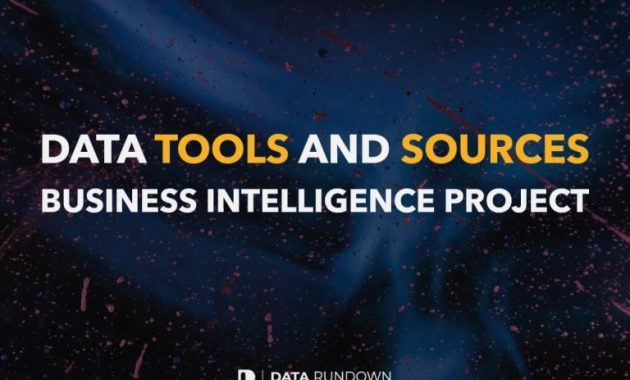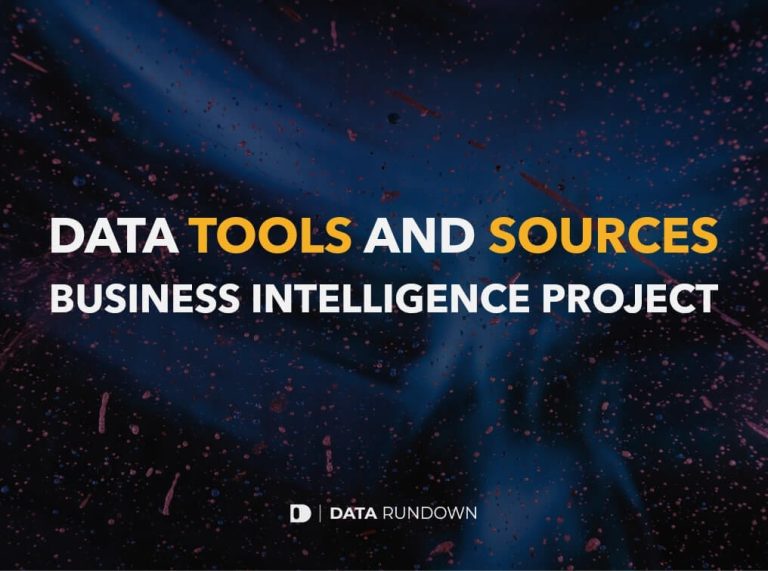
Secrets of 7 Business Intelligence Tools Used by Experts: Unveiling Data Insights
In today’s data-driven world, businesses are constantly seeking ways to gain a competitive edge. This involves making informed decisions based on solid data analysis. One of the most effective ways to achieve this is by leveraging Business Intelligence (BI) tools. These tools empower organizations to collect, analyze, and visualize data. This leads to actionable insights. But, what are the secrets of the tools used by the experts? This article dives into seven powerful BI tools. It uncovers how these tools are used by professionals to unlock data’s true potential.
The landscape of Business Intelligence is vast and ever-evolving. It offers a plethora of tools. Each tool offers unique capabilities. Selecting the right tools can be a game-changer. It is crucial for informed decision-making. Experts in the field have honed their skills using a select group of tools. They provide the most comprehensive data insights. This article explores these tools.
Understanding the Importance of Business Intelligence
Before delving into specific tools, it is vital to understand the core principles of Business Intelligence. BI is a process. It transforms raw data into meaningful information. This information supports strategic, tactical, and operational decision-making. The benefits of BI are numerous. These include improved efficiency, cost reduction, and enhanced customer satisfaction. BI helps businesses understand market trends. It provides a deep dive into customer behavior.
Effective BI implementation includes several key components. These are data collection, data warehousing, data analysis, and data visualization. Each component plays a vital role. It contributes to the overall effectiveness of the BI process. The tools discussed below excel in one or more of these areas.
Top 7 Business Intelligence Tools Used by Experts
The following seven Business Intelligence tools are widely recognized. They are used by experts across various industries. They are known for their robust features and user-friendly interfaces.
1. Tableau
Tableau is a leading data visualization tool. It is renowned for its intuitive interface and powerful analytical capabilities. Experts use Tableau to create interactive dashboards and reports. These dashboards allow users to explore data visually. They can quickly identify trends and patterns. Tableau’s drag-and-drop functionality makes it easy to create complex visualizations. This is true even for users with limited technical skills. Tableau also offers robust data connectivity. It integrates with a wide range of data sources. This includes databases, cloud services, and spreadsheets. [See also: Mastering Tableau for Data Visualization]
2. Power BI
Power BI, developed by Microsoft, is another industry leader in BI. It offers a comprehensive suite of tools for data analysis and visualization. Power BI seamlessly integrates with other Microsoft products. This makes it a popular choice for businesses already using the Microsoft ecosystem. It provides a user-friendly interface and powerful data modeling capabilities. Experts use Power BI to build interactive dashboards. They also create insightful reports. Power BI also offers a robust data refresh feature. It ensures that data is always up-to-date.
3. Qlik Sense
Qlik Sense is known for its associative data modeling engine. This allows users to explore data in a more intuitive way. Qlik Sense highlights relationships between data points. It helps users uncover hidden insights. Experts use Qlik Sense to create dynamic dashboards. They use it to perform advanced analytics. The tool supports a variety of data sources. It offers a user-friendly interface. Qlik Sense is also known for its scalability. This is vital for growing businesses.
4. Looker
Looker, now part of Google Cloud, is a BI tool focused on data modeling and collaboration. It uses a language called LookML. This language defines data models. It ensures consistency across reports and dashboards. Experts use Looker to build a single source of truth for data. They use it to facilitate collaboration among teams. Looker’s strong data governance features make it ideal for organizations with complex data requirements. [See also: Data Governance Best Practices]
5. SAP BusinessObjects
SAP BusinessObjects is a comprehensive BI platform. It offers a wide range of features. These include reporting, analysis, and data warehousing. SAP BusinessObjects is a powerful tool. It is used by large enterprises. It helps them manage and analyze vast amounts of data. Experts use SAP BusinessObjects to create sophisticated reports. They also use it to perform complex data analysis. The platform integrates seamlessly with SAP’s other business applications.
6. Sisense
Sisense is a BI platform. It is designed for ease of use and speed. It allows users to analyze complex data sets. Sisense simplifies the process of data preparation and visualization. Experts use Sisense to quickly create dashboards. They use them to gain insights. Sisense’s in-memory technology ensures fast performance. This is crucial for real-time data analysis. The platform supports a variety of data sources. It offers a user-friendly interface.
7. Domo
Domo is a cloud-based BI platform. It offers a unified view of all business data. Domo simplifies the process of data integration and analysis. Experts use Domo to monitor key performance indicators (KPIs). They also use it to track business performance in real-time. Domo’s mobile-first design makes it accessible from anywhere. Domo offers a user-friendly interface. It provides powerful data visualization capabilities.
Choosing the Right Business Intelligence Tool
Selecting the right Business Intelligence tool is a critical decision. It depends on several factors. These include the size of the organization, the complexity of the data, and the specific business needs. It’s essential to evaluate the capabilities of each tool. Assess its user-friendliness and data connectivity options. Consider the cost and scalability of the tool. This helps ensure the tool aligns with the organization’s long-term goals. Business Intelligence tools are essential for modern businesses. They help them make informed decisions.
Expert Strategies for Using Business Intelligence Tools
Beyond selecting the right tool, experts employ several strategies. These strategies maximize the value of their BI investments. These strategies include:
- Data Integration: Integrating data from multiple sources is essential. This provides a holistic view of the business.
- Data Governance: Implementing robust data governance policies ensures data quality and consistency.
- Data Visualization: Creating clear and concise visualizations is crucial. They help users understand complex data.
- User Training: Providing adequate training empowers users. It allows them to effectively use the tools.
- Continuous Improvement: Regularly reviewing and refining BI processes ensures optimal performance.
By employing these strategies, organizations can fully leverage their BI tools. They can transform data into actionable insights. These insights drive business success. The right Business Intelligence tool can be a game-changer. It is used by experts across various industries.
The Future of Business Intelligence
The Business Intelligence landscape is constantly evolving. New technologies and trends are emerging. These will further shape the future of BI. Key trends include the increasing use of artificial intelligence (AI) and machine learning (ML). These technologies automate data analysis. They provide predictive insights. The growth of cloud-based BI platforms continues. This offers greater flexibility and scalability. The focus on self-service BI tools is increasing. It empowers business users to analyze data. They can make decisions independently. [See also: The Impact of AI on Business Intelligence]
Staying informed about these trends is vital. It allows businesses to adapt and thrive in the data-driven era. The use of Business Intelligence tools by experts reveals critical secrets. These secrets are the key to unlocking data insights. They drive business growth. Businesses must embrace these tools. They can make informed decisions. They can also gain a competitive edge. This is the path to lasting success.
Conclusion: Secrets of the Tools
The secrets of the seven Business Intelligence tools used by experts are multifaceted. They involve the right tool selection. They also require the strategic implementation. These tools are essential for businesses. They help them navigate the complexities of the modern data landscape. By understanding these secrets, businesses can unlock the power of data. They can drive innovation and achieve lasting success. Business Intelligence tools are crucial for data-driven decision-making. They are used by experts to gain a competitive edge. They are the key to the future.

